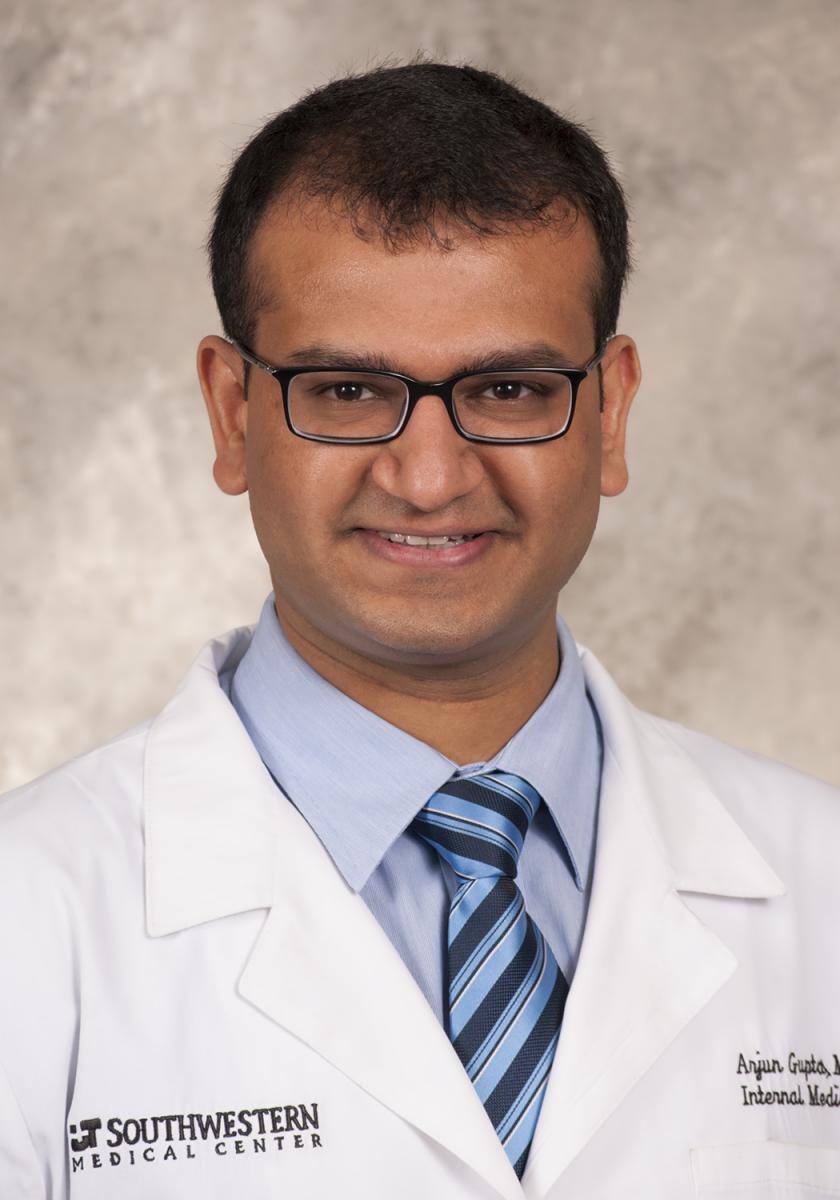 By Arjun Gupta, MD
By Arjun Gupta, MD
As a third-year internal medicine resident, I chose to rotate on the inpatient hematology oncology service at Parkland Hospital, the safety net hospital of Dallas County. It was a highly regarded rotation, especially popular among residents wanting to go into oncology, like myself. It was about this time that I was appointed as the incoming Chief Resident for Quality Improvement and Patient Safety at the University of Texas Southwestern Medical Center, Dallas. I was looking for oncology quality improvement projects and approached some faculty who suggested I just observe everyday happenings, and that I was bound to find a great idea.
I went into the rotation with an open mind and on the first day, a patient with high-grade lymphoma arrived to our unit at 8 AM for scheduled multiday chemotherapy. This patient had been seen in clinic by her oncologist 2 days ago—she was without symptoms at that time, her bloodwork was normal, and she had a functioning central line in place. I met and examined the patient, and she reported feeling well. We okayed her for chemotherapy. When I went to check in on her at 3:30 PM, chemotherapy had not been started! She had been in the hospital for 7.5 hours, had missed a day of work, and had not received any active therapy!
I raised the issue with our faculty, Dr. Navid Sadeghi and Dr. Jenny Li, who were also concerned that this was not a one-off incident and our patients were indeed needlessly waiting for chemotherapy to start. They were extremely receptive and willing to make changes to ensure better care for our patients. A quick analysis demonstrated that the median time to starting chemotherapy after patient arrival was 6.2 hours. We had heard about ASCO’s Quality Training Program (QTP) at the 2016 ASCO Annual Meeting in Chicago, and decided this would be an important problem to tackle with some formal supervision. We assembled a multidisciplinary team, including Thao Pham, our pharmacist, and Sudarshan Pathak, our nursing unit manager, and applied for the 2017 QTP, which was fortunately being held in Dallas, our home city.
From the start, we had a wonderful experience. Arrangements were made well in advance and the timeframe of the program was ideal for implementing a project. Since quality improvement is by definition local, and we knew the local context better than anyone, we had complete ownership of the project. A total of 5 days of in-person sessions were held over 6 months (2-day sessions in April and July, and a final presentation day in October). It sounds incredible that so much was fit into just 4 days of formal training, but we felt supported at all times. It was a great course for people with all levels of backgrounds in quality improvement—some participants had done formal courses earlier, while others had no experience with quality improvement. The sessions were always activity based and often dealt with real-life situations. We started with understanding the science of performance improvement, variation, and team building. Then we moved to our specific projects and learnt about project charters, process analysis, and LEAN. Appropriate statistical software (QI Macros) was provided to all teams by the QTP. Each team was assigned a coach, who personally guided us on the project and provided supervision via teleconferences and email as needed. Our core team of five members met every 2 weeks and decided on the plan that we successfully implemented. In just 6 months, we were able to reduce the median delay to chemotherapy from 6.2 hours to 3.2 hours. It was a proud moment for us to present our project at the QTP “graduation day” in October 2017.
Apart from the formal training we received, there are a few other fantastic things about the QTP. Teams from all over the United States, as well as from Brazil and the United Arab Emirates, participated. We all had a chance to interact and understand how other systems worked, and discuss solutions and perspectives to problems. I interacted with several faculty members from various cancer centers with similar interests in oncology quality improvement, and this has led to successful multi-institutional research collaborations. The QTP was a big talking point during my oncology fellowship interview this fall—and practicing the elevator pitch for our project during one of the QTP sessions made me a better interviewee. Most impressively, though, we were able to transfer the learnings from QTP to all 170 of our internal medicine residents at UT Southwestern Medical Center. We modified the teaching techniques and case studies and held a 3-hour session for them. The training was very well received and has led to several resident-led quality improvement projects, even in the non-oncology setting.
The QTP helped lay the foundations for providing better care for our patients, which is the ultimate goal. I strongly recommend the QTP for all members of the oncology workforce interested in quality improvement. I would happily go through the program again if given the chance.
Dr. Gupta is Chief Resident of Quality Improvement and Patient Safety in the Department of Internal Medicine at the University of Texas Southwestern Medical Center and Parkland Health and Hospital Systems, Dallas.
The multidisciplinary QTP team from Parkland Hospital, from left to right, Navid Sadeghi, Jenny Li, Arjun Gupta, Thao Pham, Sudarshan Pathak.
One of the many fun activities during QTP: understanding variation through the "card drop exercise."
Teaching the QTP learnings to the internal medicine residents at UT Southwestern Medical Center. All photos courtesy of Dr. Gupta.


Recent posts